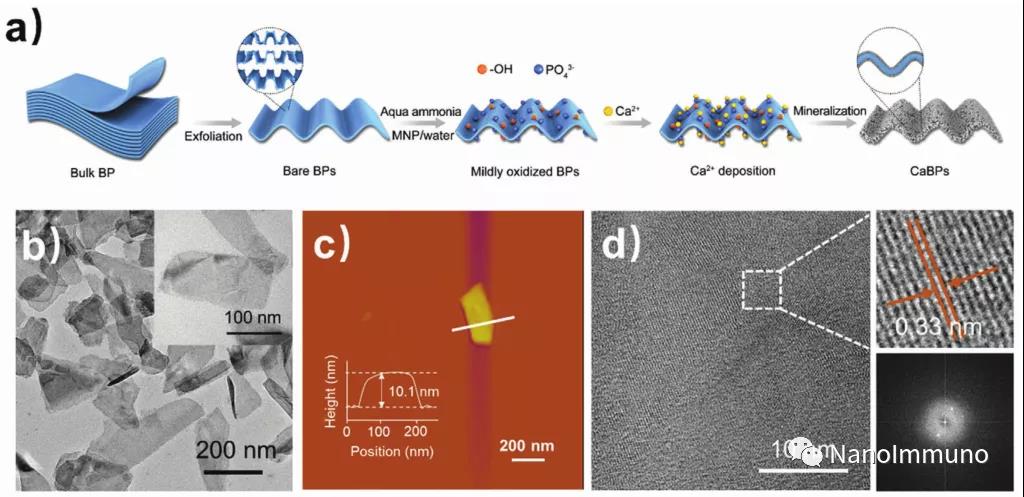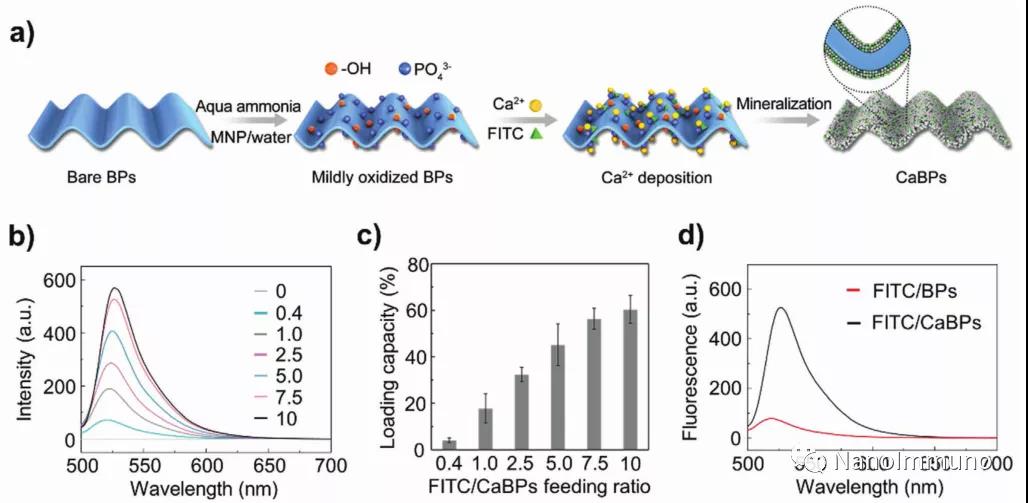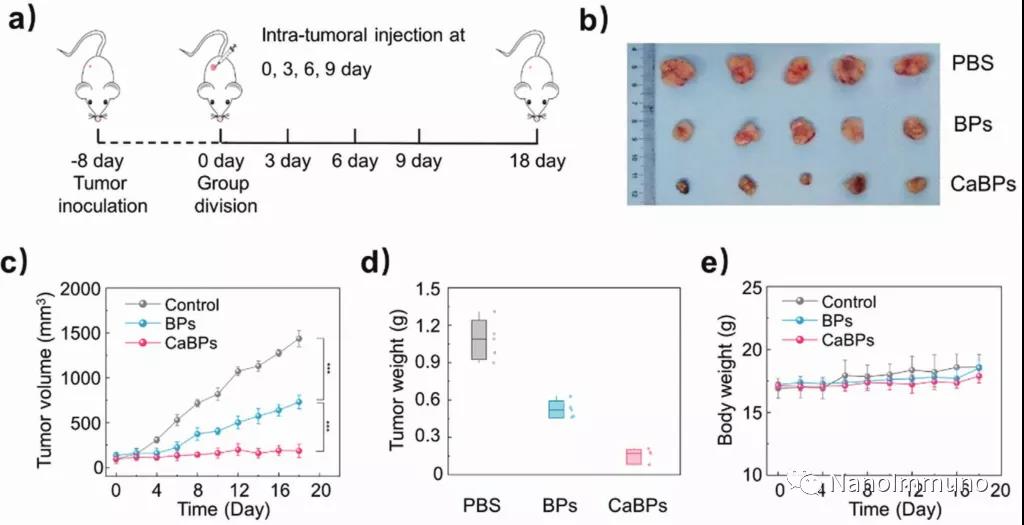Yu Xuefeng AFM: Calcium phosphate mineralized black phosphorus has enhanced function and anti-cancer biological activity


Due to its inherent anti-cancer activity, biodegradable inorganic nanomaterials have opened up new prospects for cancer treatment. Black phosphorous nanosheets (BPs) have unique biological activities and have recently been recognized as promising cancer therapeutics, but their application has been hindered due to the difficulty of surface functionalization. Yu Xuefeng and Wenhua Zhou of Shenzhen Institute of Advanced Technology, Chinese Academy of Sciences reported on in-situ calcium phosphate (CaP) mineralization strategies to enhance the anti-cancer activity of BPs.

By using BP as a phosphate source and growth template, the synthesized CaP mineralized BPs (CaBPs) retain the inherent characteristics of BPs, and have high loading capacity for various fluorophores, enabling effective biological imaging and tracing. Compared with BPs, CaBPs exhibit enhanced and selective anti-cancer biological activity, which is attributed to the improved pH response degradation behavior and intracellular Ca2+ overload in cancer cells. In addition, CaBPs specifically target mitochondria and cause structural damage, leading to mitochondrial-mediated apoptosis of cancer cells. After intravenous injection, CaBPs target breast cancer cells in situ to inhibit tumor growth without causing systemic toxicity. The results show that CaBPs have great potential as targeted anticancer drugs, and the CaP mineralization method provides a general surface functionalization strategy for nano-therapeutics.

In situ CaP mineralization is an ideal method to realize functionalization of BPs surface to improve anti-cancer biological activity and fluorescence imaging. CaP mineralization will not affect the inherent characteristics and morphology of BPs, and will increase the loading capacity of fluorophores, thereby facilitating biological imaging and tracing. Due to the enhanced pH response degradation and additional intracellular Ca2+ overload, CaBPs show higher anticancer activity than BPs. In addition, CaBPs specifically target mitochondria and trigger mitochondrial-mediated tumor cell apoptosis. In vivo experiments have confirmed that intravenous injection can target breast cancer cells in situ and specifically inhibit tumor growth without adverse reactions or toxicity. CaBPs with excellent and targeted anti-cancer biological activity are promising in cancer treatment. In situ CaP mineralization provides a novel and versatile method to improve the therapeutic properties of nano-therapeutic materials.

18915694570
Previous: NML Research Article|I


